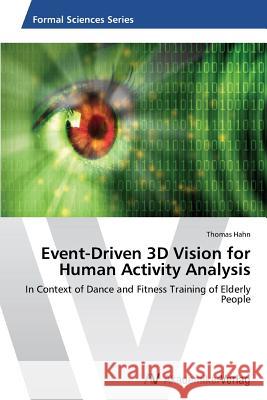Event-Driven 3D Vision for Human Activity Analysis » książka
Event-Driven 3D Vision for Human Activity Analysis
ISBN-13: 9783639476729 / Angielski / Miękka / 2013 / 144 str.
Over the last years many implementations concerning the recognition of human motion have been developed. In this thesis a system for recognition of human motion in the area of dance and fitness training for elderly people is introduced. As the input device, a novel event-driven 3D vision sensor, developed at the AIT Austrian Institute of Technology is used in this approach. This thesis thereby shows the performance of the designed application and points out the opportunity for further employments. Though it was significant how the chosen classification method can be used for the obtained features from the received data.Additionally first performance measurements were done. For this first implementation MATLAB was chosen as the main platform and further applications shall be based on this gained knowledge.For experimentation with the implemented algorithm a database including 580 samples with 8 different activities from 15 individuals, using the 3D sensor, was recorded. To obtain representative experimentation results a cross validation was applied and different settings were used to compare the results. Additionally, test sessions were done on different data sets and for the best results the training and evaluation time was recorded to point out the possibility of real-time usage. The best results thereby reached an average correct recognition rate of around 96%.
Over the last years many implementations concerning the recognition of human motion have been developed. In this thesis a system for recognition of human motion in the area of dance and fitness training for elderly people is introduced. As the input device, a novel event-driven 3D vision sensor, developed at the AIT Austrian Institute of Technology is used in this approach. This thesis thereby shows the performance of the designed application and points out the opportunity for further employments. Though it was significant how the chosen classification method can be used for the obtained features from the received data.Additionally first performance measurements were done. For this first implementation MATLAB was chosen as the main platform and further applications shall be based on this gained knowledge.For experimentation with the implemented algorithm a database including 580 samples with 8 different activities from 15 individuals, using the 3D sensor, was recorded. To obtain representative experimentation results a cross validation was applied and different settings were used to compare the results. Additionally, test sessions were done on different data sets and for the best results the training and evaluation time was recorded to point out the possibility of real-time usage. The best results thereby reached an average correct recognition rate of around 96%.











